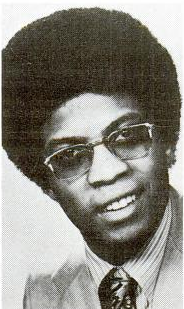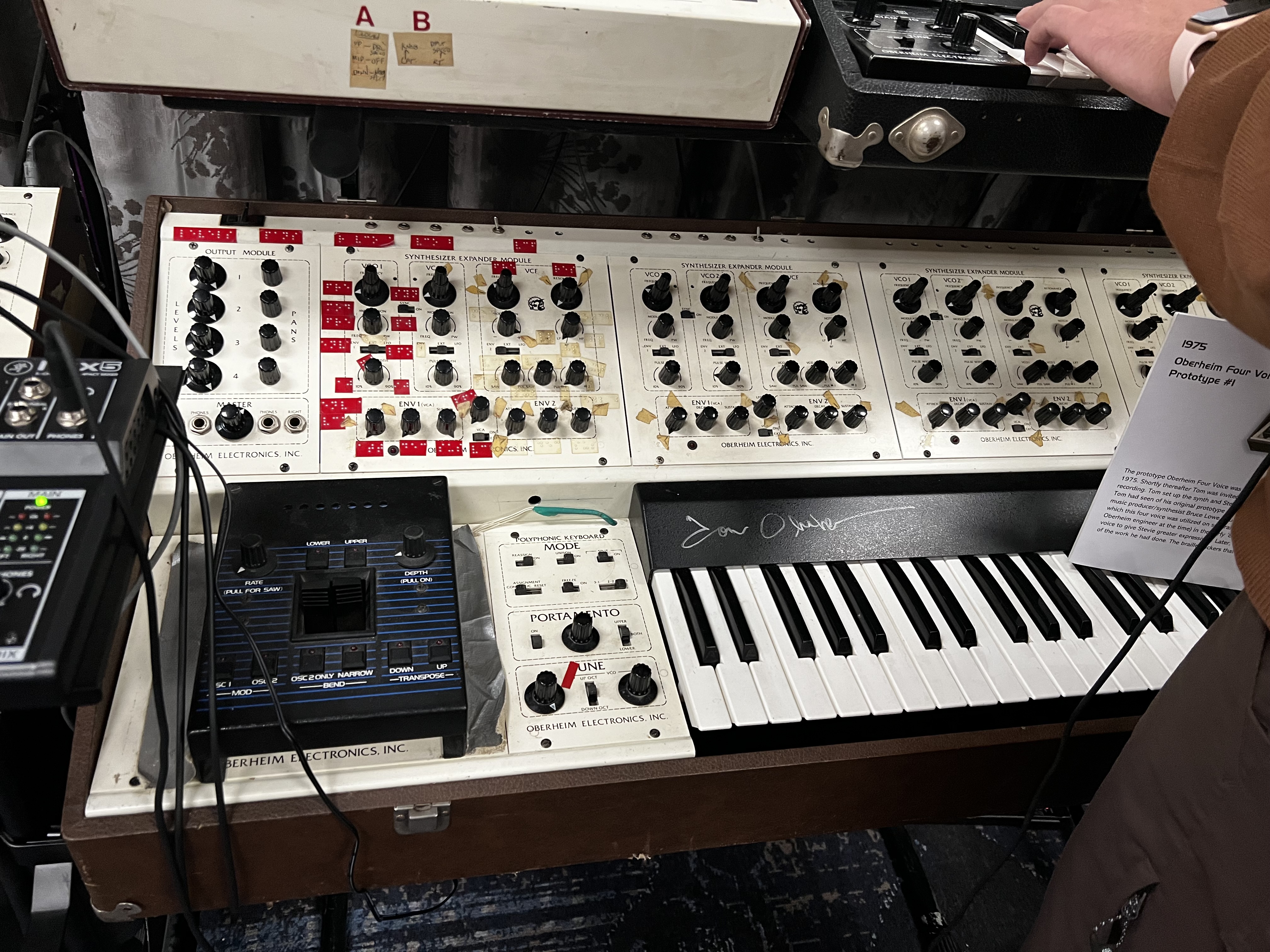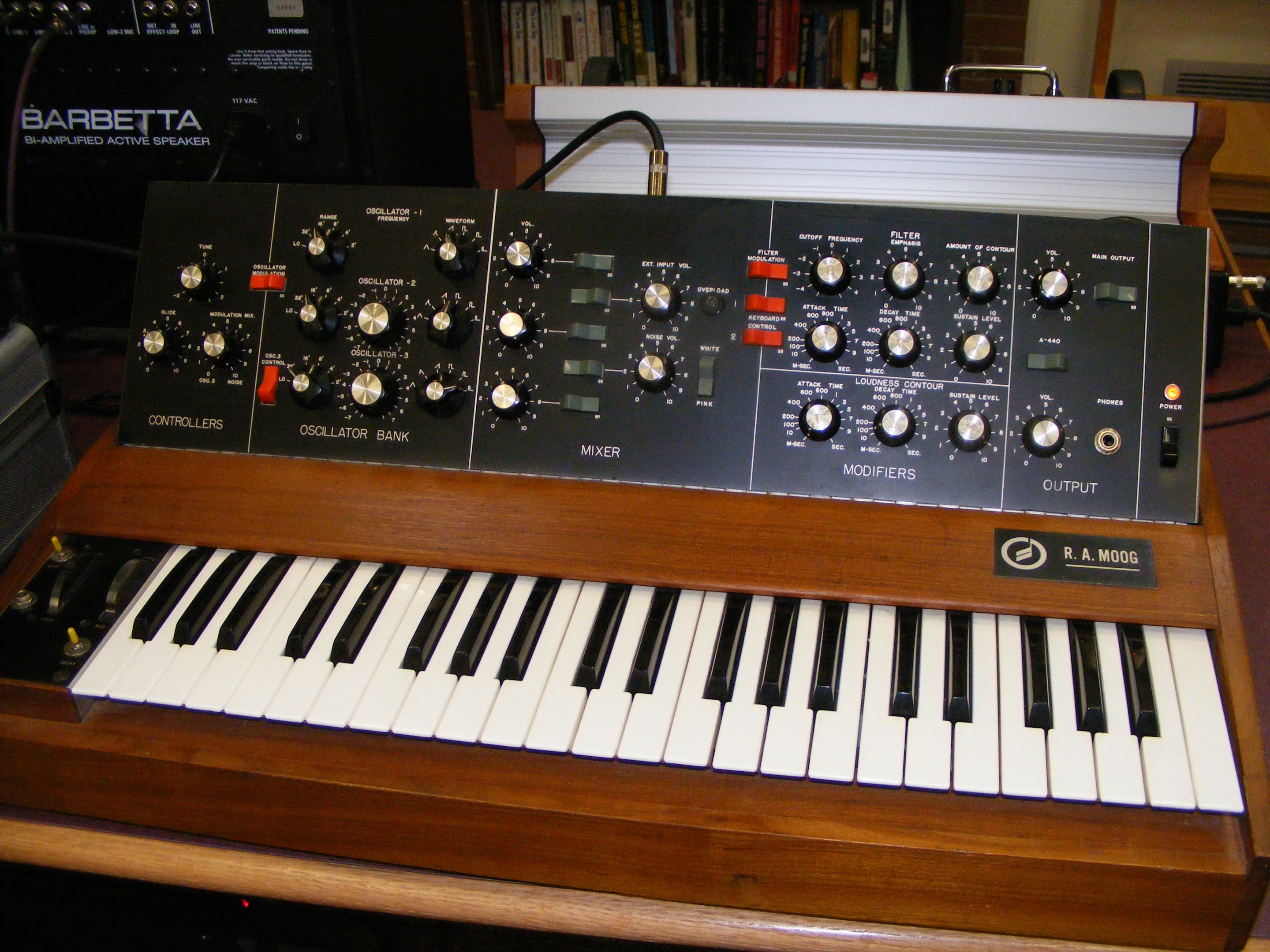|
Monster (Herbie Hancock Album)
''Monster'' is the 29th album by jazz pianist Herbie Hancock. As a follow-up to the album ''Feets, Don't Fail Me Now'' (1979), it continued the trend of disco songs, lacking any jazz influence. The album features vocals on each track, this time without vocoder processing. The album also includes an appearance by Carlos Santana on the opening track "Saturday Night"; this track was the first of many eventual collaborations with Santana, including the 1980 album ''The Swing of Delight''. The track "Stars In Your Eyes" was issued as an extended 12" single. Track listing #"Saturday Night" ( Jeffrey Cohen, Hancock, David Rubinson) - 7:13 #"Stars in Your Eyes" (Lisa Capuano, Gavin Christopher, Hancock, Ray Parker Jr.) - 7:05 #"Go for It" (Cohen, Hancock, Alphonse Mouzon, Rubinson) - 7:35 #"Don't Hold It In" (Cohen, Melvin Ragin) - 8:02 #"Making Love" (Hancock, Mouzon) - 6:23 #"It All Comes Around" (Cohen, Ragin, Rubinson) - 5:49 Personnel *Herbie Hancock - synthesizer, acoustic pia ... [...More Info...] [...Related Items...] OR: [Wikipedia] [Google] [Baidu] |
Herbie Hancock
Herbert Jeffrey Hancock (born April 12, 1940) is an American jazz pianist, keyboardist, bandleader, and composer. Hancock started his career with trumpeter Donald Byrd's group. He shortly thereafter joined the Miles Davis Quintet, where he helped to redefine the role of a jazz rhythm section and was one of the primary architects of the post-bop sound. In the 1970s, Hancock experimented with jazz fusion, funk, and electro styles, utilizing a wide array of synthesizers and electronics. It was during this period that he released perhaps his best-known and most influential album, ''Head Hunters''. Hancock's best-known compositions include " Cantaloupe Island", " Watermelon Man", " Maiden Voyage", and " Chameleon", all of which are jazz standards. During the 1980s, he enjoyed a hit single with the electronic instrumental " Rockit", a collaboration with bassist/producer Bill Laswell. Hancock has won an Academy Award and 14 Grammy Awards, including Album of the Year for his 200 ... [...More Info...] [...Related Items...] OR: [Wikipedia] [Google] [Baidu] |
The Swing Of Delight
''The Swing of Delight'' is a 1980 double album by Carlos Santana. It was released under his temporary Sanskrit name ''Devadip'' Carlos Santana, given to him by Sri Chinmoy. It peaked at #65 on the charts. On the album, Santana is joined by musicians from the Santana band as well as members of Miles Davis' 1960s quintet: saxophonist Wayne Shorter, pianist Herbie Hancock, bassist Ron Carter, and drummer Tony Williams, whom Santana described as "the best musicians on the planet." Santana later recalled that he was "scared to death" in the studio, but stated that playing with such top-notch musicians "will make a guitar player turn down—turn it down and go deep, deep inside himself for the inner stuff." ''The Swing of Delight'' was the last album on which Santana used the name Devadip, as he left Chinmoy's circle in 1982 due to his having become disillusioned with the guru. Reception In a review for AllMusic, William Ruhlmann called the album "a varied, jazz-oriented ses ... [...More Info...] [...Related Items...] OR: [Wikipedia] [Google] [Baidu] |
Freddie Washington (bassist)
"Ready" Freddie Washington is an American session bassist who has played with artists such as Herbie Hancock, Michael Jackson, Al Jarreau, Aaron Neville, Lionel Richie, Anita Baker, B.B. King, Elton John, Patrice Rushen, Stevie Wonder and Whitney Houston, Donald Fagen, The Crusaders, George Benson, Deniece Williams, Johnny Mathis, Burt Bacharach, Kenny Loggins and Steely Dan. He is best known for his songwriting contribution to "Forget Me Nots" by Patrice Rushen, which heavily features his bass work and was later sampled by Will Smith for "Men in Black". During the 1990s, Washington and Rushen were part of a popular rhythm section known as "The Meeting". More recently, Washington has toured with Steely Dan. In 2005, Washington was a participant in Star Licks Productions Star Licks Productions (also known as StarLicks) was an instructional music publishing company conceived by Mark Freed and co-founded by Andrew Cross and Robert Decker. The company was at the forefront of cre ... [...More Info...] [...Related Items...] OR: [Wikipedia] [Google] [Baidu] |
Randy Hansen
Randy Hansen (born December 8, 1954) is an American guitarist best known for his "Rock Tribute Act" honoring Jimi Hendrix.Artist Bio's Gen-X Entertainment Intl. Inc. Accessed 6 October 2008. He composed 17 minutes of the soundtrack for the 1979 movie '''', (1980 Academy Award Winner for Best Sound). His debut was released in 1980 on and was recorded at the |
Prophet 5
The Prophet-5 is an analog synthesizer manufactured by the American company Sequential. It was designed by Dave Smith and John Bowen in 1977, who used microprocessors, then a new technology, to create the first polyphonic synthesizer with fully programmable memory. This allowed users to store sounds and recall them instantly rather than having to reprogram them manually; whereas synthesizers had once created unpredictable sounds, the Prophet-5 moved synthesizers to producing "a standard package of familiar sounds". Between 1978 and 1984, about 6,000 units were produced across three revisions. In 1981, Sequential released a 10-voice, double-keyboard version, the Prophet-10. Sequential introduced new versions in 2020, and it has been emulated in software synthesizers and hardware. The Prophet-5 has been widely used in popular music and film soundtracks. Development The Prophet-5 was created in 1977 by Dave Smith and John Bowen at Sequential Circuits. At the time, Smith had a ... [...More Info...] [...Related Items...] OR: [Wikipedia] [Google] [Baidu] |
Oberheim 8 Voice
The Oberheim Polyphonic Synthesizer is a range of analog music synthesizers that was produced from 1975 to 1979 by Oberheim Electronics. It was developed by Tom Oberheim, and was the first production synthesizer capable of playing chords. Specification Oberheim took the idea and electronics of a Minimoog synthesizer and put them in a small box, making a few changes, and in 1974 introduced the SEM (Synthesizer Expander Module), which became the building block of his polyphonic synths. By strapping two, four, or eight of these SEMs together under keyboard control, he was able to create practical, albeit large, synthesizers that could play two, four, or eight notes simultaneously. The Oberheim Polyphonic Synthesizer was born. Each SEM in an Oberheim Polyphonic generates one voice (or note). There was an optional Polyphonic Synthesizer Programmer module (PSP-1) for the four- and eight-voice models with 16 memories, which allowed the user to store and recall some sound settings of ... [...More Info...] [...Related Items...] OR: [Wikipedia] [Google] [Baidu] |
Minimoog
The Minimoog is an analog synthesizer first manufactured by Moog Music between 1970 and 1981. Designed as a more affordable, portable version of the modular Moog synthesizer, it was the first synthesizer sold in retail stores. It was first popular with progressive rock and jazz musicians and found wide use in disco, pop, rock and electronic music. Production of the Minimoog stopped in the early 1980s after the sale of Moog Music. In 2002, founder Robert Moog regained the rights to the Moog brand, bought the company, and released an updated version of the Minimoog, the Minimoog Voyager. In 2016 and in 2022, Moog Music released another new version of the original Minimoog. Development In the 1960s, RA Moog Co manufactured Moog synthesizers, which helped bring electronic sounds to music but remained inaccessible to ordinary people. These modular synthesizers were difficult to use and required users to connect components manually with patch cables to create sounds. They were a ... [...More Info...] [...Related Items...] OR: [Wikipedia] [Google] [Baidu] |
Clavinet
The Clavinet is an electrically amplified clavichord invented by Ernst Zacharias and manufactured by the Hohner company of Trossingen, West Germany, from 1964 to 1982. The instrument produces sounds by a rubber pad striking a point on a tensioned string, and was designed to resemble the Renaissance-era clavichord. Although originally intended for home use, the Clavinet became popular on stage, and could be used to create electric guitar sounds on a keyboard. It is strongly associated with Stevie Wonder, who used the instrument extensively, particularly on his 1972 hit "Superstition", and was regularly featured in rock, funk and reggae music throughout the 1960s and 1970s. Modern digital keyboards can emulate the Clavinet sound, but there is also a grass-roots industry of repairers who continue to maintain the instrument. Description The Clavinet is an electromechanical instrument that is usually used in conjunction with a keyboard amplifier. Most models have 60 keys ranging ... [...More Info...] [...Related Items...] OR: [Wikipedia] [Google] [Baidu] |
Keyboard Instrument
A keyboard instrument is a musical instrument played using a keyboard, a row of levers which are pressed by the fingers. The most common of these are the piano, organ, and various electronic keyboards, including synthesizers and digital pianos. Other keyboard instruments include celestas, which are struck idiophones operated by a keyboard, and carillons, which are usually housed in bell towers or belfries of churches or municipal buildings. Today, the term ''keyboard'' often refers to keyboard-style synthesizers. Under the fingers of a sensitive performer, the keyboard may also be used to control dynamics, phrasing, shading, articulation, and other elements of expression—depending on the design and inherent capabilities of the instrument. Another important use of the word ''keyboard'' is in historical musicology, where it means an instrument whose identity cannot be firmly established. Particularly in the 18th century, the harpsichord, the clavichord, and the early ... [...More Info...] [...Related Items...] OR: [Wikipedia] [Google] [Baidu] |
Synthesizer
A synthesizer (also spelled synthesiser) is an electronic musical instrument that generates audio signals. Synthesizers typically create sounds by generating waveforms through methods including subtractive synthesis, additive synthesis and frequency modulation synthesis. These sounds may be altered by components such as filters, which cut or boost frequencies; envelopes, which control articulation, or how notes begin and end; and low-frequency oscillators, which modulate parameters such as pitch, volume, or filter characteristics affecting timbre. Synthesizers are typically played with keyboards or controlled by sequencers, software or other instruments, and may be synchronized to other equipment via MIDI. Synthesizer-like instruments emerged in the United States in the mid-20th century with instruments such as the RCA Mark II Sound Synthesizer, RCA Mark II, which was controlled with Punched card, punch cards and used hundreds of vacuum tubes. The Moog synthesizer, d ... [...More Info...] [...Related Items...] OR: [Wikipedia] [Google] [Baidu] |
Wah Wah Watson
Melvin M. Ragin (December 8, 1950 – October 24, 2018), known professionally as "Wah Wah Watson", was an American guitarist who was a member of The Funk Brothers, the studio band for Motown Records. Career A native of Richmond, Virginia, Melvin Ragin moved to Detroit and became a member of the Motown Records studio band The Funk Brothers, where he recorded with artists like The Temptations (his guitar work on "Papa Was a Rollin' Stone" is particularly notable), The Jackson 5, the Four Tops, Gladys Knight & the Pips, and The Supremes. He played on numerous sessions in the 1970s and 1980s for many top soul, funk and disco acts, including Herbie Hancock; he both recorded and composed songs with the Pointer Sisters. In 1977, Watson released his first solo album, ''Elementary'', on Columbia Records. The album was co-produced by Watson and David Rubinson. In 1994, Watson appeared on the Red Hot Organization's compilation album, '' Stolen Moments: Red Hot + Cool''. The albu ... [...More Info...] [...Related Items...] OR: [Wikipedia] [Google] [Baidu] |
Alphonse Mouzon
Alphonse Lee Mouzon (November 21, 1948 – December 25, 2016) was an American jazz fusion drummer and the owner of Tenacious Records, a label that primarily released Mouzon's recordings. He was a composer, arranger, producer, and actor. He gained popularity in the late 1960s and early 1970s. Biography Early life Mouzon, of African, French, and Blackfoot descent, was born on November 21, 1948, in Charleston, South Carolina. He received his first musical training at Bonds-Wilson High School, and moved to New York City upon graduation. He studied drama and music at the City College of New York, as well as medicine at Manhattan Medical School. He continued receiving drum lessons from Bobby Thomas, the drummer for jazz pianist Billy Taylor. He played percussion in the 1968 Broadway show '' Promises, Promises'', and he then worked with pianist McCoy Tyner. He spent a year as a member of the jazz fusion band, Weather Report. After that Mouzon signed as a solo artist to the Bl ... [...More Info...] [...Related Items...] OR: [Wikipedia] [Google] [Baidu] |




%2C_MIM_PHX.jpg)

